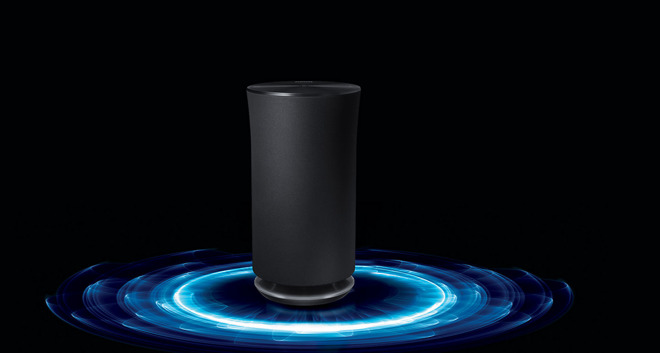Samsung's attempt to take on Apple's HomePod, Amazon's Alexa range and other smart speakers will apparently arrive far later than originally expected, after Samsung's mobile chief advised the Bixby-powered audio device will be making its debut in the second half of this year.

Samsung's R1 wireless multiroom speaker, which may hint at what its Bixby-powered smart speaker may look like
D.J. Koh, the head of Samsung's mobile division, informed the Wall Street Journal that its attempt to enter the digital assistant-equipped smart speaker market will launch in the latter half of 2018. The interview, which primarily concerns the recently-revealed Galaxy S9, confirms the smart speaker is still being developed, but will hit the market later than the first half of this year, as initially reported in December 2017.
Based on the original launch period, Samsung's speaker could potentially have launched around the time of HomePod, to more directly compete against Apple's audio offering. The shift into the second half of the year gives the HomePod more time to establish itself in the speaker marketplace before Samsung's version has a chance to take off.
The delay is not only beneficial to Apple, as speakers from Google, Amazon, Sonos, and other firms will be able to increase their customer base during the same time. The longer Samsung waits before releasing its speaker, the more saturated the market will be, making it tougher for Samsung's product to find customers.
Koh did hint in the conversation that Samsung's speaker will be a more expensive product, suggesting "When I introduce the first model, I don't want to give the impression that Samsung delivered another affordable mass model. I want to focus on more premium."
Even so, Koh admits that pricing for the device has yet to be determined. It is also suggested there may be more than one speaker offered to customers, set at different pricing tiers.
Rumors about Samsung's speaker suggests it will follow the HomePod route of focusing on audio quality, as well as the management of smart home appliances, such as those supporting Samsung's SmartThings platform. A prototype said to be undergoing testing is claimed to not have a touchscreen, but will instead have a visual feedback system using a set of lights at the top of the chassis.
Just as HomePod includes Siri, Samsung's device is expected to use the company's own digital assistant. Created to compete with Siri, Bixby was introduced with the Galaxy S8 last year as an assistant capable of recognizing commands with incomplete information and contextual awareness, but smartphone users in the United States did not get to try out the assistant until three months after the phone's launch.


